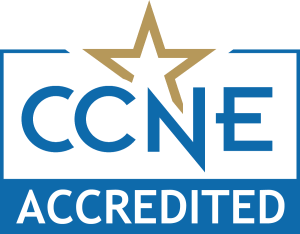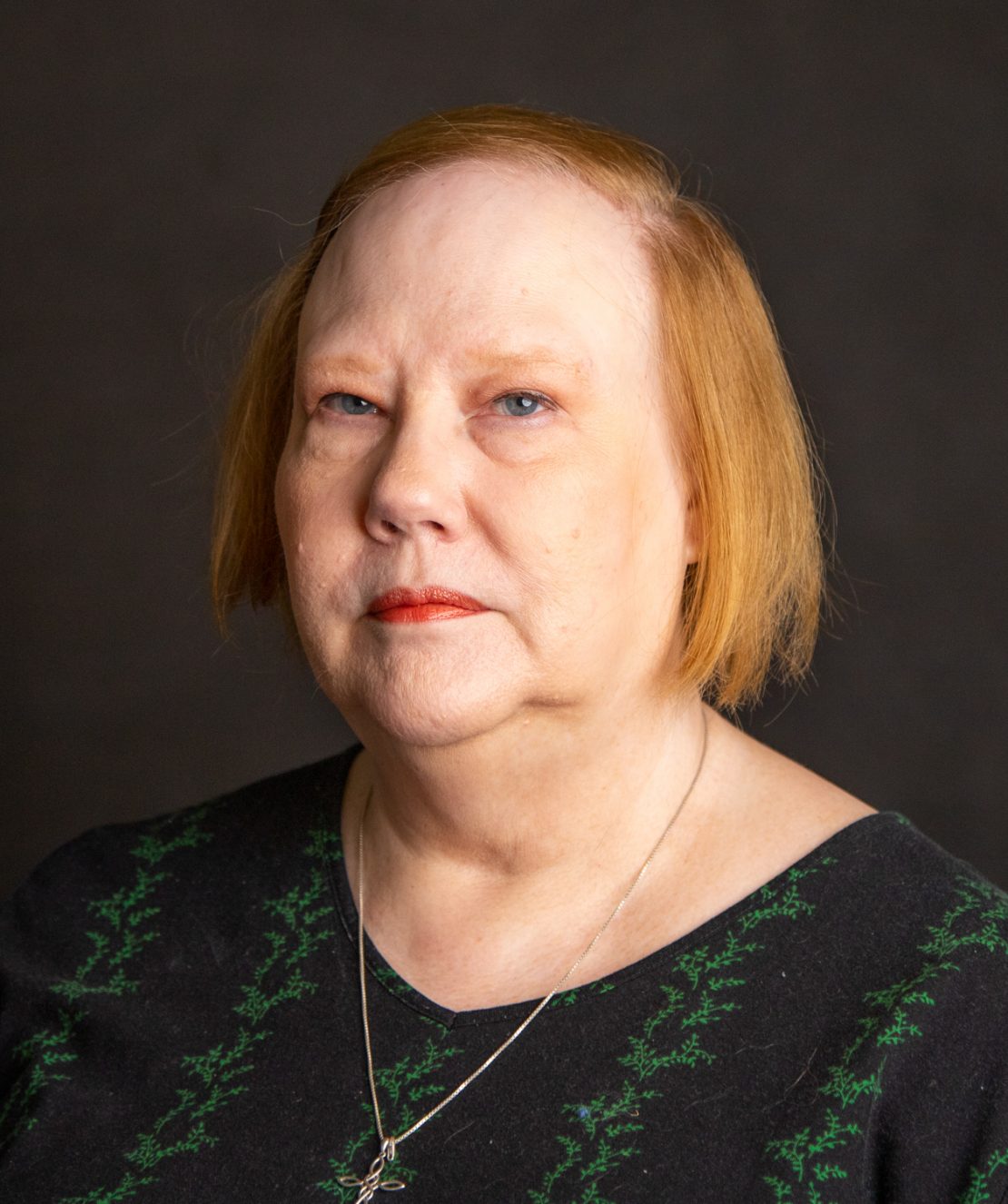King University’s Master of Science in Nursing (MSN) program offers three concentration options to prepare you for a specialty role in advanced nursing practice, leadership in the nursing profession, and future doctoral study.
Already have an MSN? Click here to see the Post-Master’s Certificate options.
Geared towards practicing nurses who have earned a BSN degree, the MSN program is offered in flexible online MSN program options. Through the program, you can obtain the advanced theoretical knowledge, research, and practice skills needed to excel in increasingly complex care settings. In-person Intensives are required at the beginning of each semester. If you live a great distance, there may be a virtual option.
Tennessee residents who want to earn their MSW or MSN-Psychiatric Mental Health Nurse Practitioner degree at King can now apply for the Tennessee Behavioral Pathways scholarship, which provides up to $30,000 in tuition aid over a two-year period. More details and the portal to apply are available HERE.
Why Choose King University’s MSN Program?
Engaging Learning Environment
Our Master of Science in Nursing program has a low student-to-faculty ratio so that students can benefit from close interaction with their instructors and fellow peers. Students can receive personalized guidance and mentorship from our renowned faculty.
Clinical Experience and Service Learning
Requiring students to complete clinical hours, the MSN program provides the opportunity to apply knowledge and skills in real nursing situations. In addition, all Master of Science in Nursing students can participate in a major service-learning project during their program of study within their specialty concentrations by assisting in health clinics, schools, and community programs.
Flexible Online Learning Options
Designed for practicing nurses who have busy schedules, our MSN program offers two learning formats:
- HyFlex learning format (for the FNP concentration only) attend class in person, synchronously online, or asynchronously online – whatever works for your busy schedule that week! Read more about how the HyFlex format works.
- In person sessions take place in Abingdon, VA at the Southwest Virginia Higher Education Center.
- Online learning format for all concentrations. THE FULLY ONLINE MSN PROGRAM allows students to learn without taking time off from their current full-time jobs.
- There is a required 1 day in-person Intensive at the beginning of each semester. If you live very far away, we will work with you to accommodate you virtually; however, in-person attendance is always preferable for the Intensive if you live in the region. Sessions take place in Abingdon, VA at the Southwest Virginia Higher Education Center.
MSN Concentrations
Within our MSN program, you may choose from three concentrations: Nurse Leadership & Administration, Family Nurse Practitioner (FNP), and Psychiatric Mental Health Nurse Practitioner (PMHNP).
Adult Gerontology Acute Care Nurse Practitioner
The Adult Gerontology Acute Care Nurse Practitioner concentration provides a five-semester plan of study to equip students with the theoretical knowledge and practical skills required to excel in complex inpatient environments, including emergency, trauma, and critical care. King University’s online MSN adult Gerontology acute Care Nurse Practitioner program is focused on the advanced skill set needed to treat adults and geriatric patients. Certification exam preparation is built into the program plan to ensure your success, and graduates are qualified to sit for the national AGACNP certification exam. Son passing the exam, they may apply for advanced practice nurse licensure in their legal state of practice.
The Master of Science in Nursing AGACNP concentration offers online classes with some synchronous session with nursing faculty.
Click here to learn more about our Online MSN Adult Gerontology Acute Care Nurse Practitioner (AGACNP) program.
- Diagnose and treat adult and geriatric patients in acute and critical care settings
- Utilize advanced practice nursing knowledge and clinical skills to help patients to advance from their acute care need to an optional health status
- Demonstrate critical thinking and analysis in the provision of safe, patient-centered, effective, and evidence-based adult and geriatric care in the acute care setting.
- Provide knowledgeable and sensitive services to multicultural and diverse patient groups
- Provide holistic care and serve as a patient advocate in accordance with the Christian belief in the dignity and worth of the individual and family
- A minimum of 600 clinical practicum hours are required for the advanced practice role as an adult gerontology acute nurse practitioner. Students will gain clinical experience caring for adult and geriatric patients in the hospital, critical care, and emergency department settings.
- Clinical experiences are accomplished under the guidance of a faculty member and a community-based, faculty-approved preceptor.
- The graduate nursing curriculum consists of courses in three areas of study:
- The advanced practice nurse core (required of all MSN students)
- The advanced practice specialty core
- the advanced nursing clinical/functional specialization
Family Nurse Practitioner Program (FNP)
The Family Nurse Practitioner concentration includes a 45-semester-hour course of study. Designed to prepare students for advanced practice roles specializing in primary care, the concentration puts an emphasis on evidence-based practice, outcomes management, clinical research, and advanced clinical decision making. With King’s HyFlex (Hybrid-Flexible) format, students are able to choose their preferred modality for instruction each week while receiving the same quality educational experience regardless of the learning platform.
- HyFlex 1 – Attend class in person with an instructor at our campus site in Abingdon, Virginia.
- HyFlex 2 – Attend a live class virtually in real-time with the instructor teaching, but you are attending class in the comfort of your own home (Synchronous).
- HyFlex 3 – Attend a recorded live lecture and participate each week at home at your convenience and on your own schedule (Asynchronous).
Review the full FNP plan of study.
Graduates of the MSN Family Nurse Practitioner concentration are eligible to take the Family Nurse Practitioner certification examination either through the American Nurses Credentialing Center (ANCC) or the American Association of Nurse Practitioners (AANP) and may apply for an advanced practice nurse license as appropriate in their legal state of practice.
- Provide health maintenance and health promotion services to individuals and families across the lifespan.
- Diagnose and treat a variety of common health problems (actual and potential) commonly encountered in primary care settings.
- Utilize advanced practice nursing knowledge and clinical skills to help patients to achieve and/or maintain optimal health or to manage chronic conditions.
- Demonstrate critical thinking and analysis in the provision of safe, patient-centered, effective, and evidence-based primary care services.
- Provide knowledgeable and sensitive services to multicultural and diverse patient groups across the lifespan.
- Provide holistic care and serve as a patient advocate in accordance with the Christian belief in the dignity and worth of the individual and family.
A minimum of 600 clinical practicum hours are required for the advanced practice role as a family nurse practitioner. Students will gain experience in primary care across the lifespan within settings specializing in Pediatrics, Women’s Health, and Care of Geriatric and Adult Populations.
These clinical experiences are accomplished under the guidance of a faculty member and a community-based faculty approved preceptor.
The graduate nursing curriculum consists of courses in three areas of study:
- The advanced practice nursing core (required of all students)
- The advanced practice specialty core
- The nursing clinical and/functional specialization
Click here to learn more about our Online MSN Family Nurse Practitioner program.
Are you interested in learning more about King University’s FNP program? Reach out to us. We’d love to help guide you along this journey.
Don’t wait!
-
- HyFlex FNP Application
- Fully online FNP Application
- The application process for the fully online FNP program is through an online application system provided by a Centralized Application Service made available by our accrediting agency.
Psychiatric Mental Health Nurse Practitioner Program (PMHNP)
The Psychiatric Mental Health Nurse Practitioner concentration provides a five-semester plan of study to equip students with advanced nursing skills for roles in psychiatric mental health care. The program develops students’ expertise in psychiatric mental health with a focus on assessing, diagnosing, and managing mental health and psychiatric disorders in a variety of settings. Students gain an optimal understanding of psychopharmacology and psychotherapies and application in the clinical area. By completing the program, graduates can take the Psychiatric Mental Health Nurse Practitioner certification exam through the American Nurses Credentialing Center (ANCC) and may apply for an advanced practice nurse license as appropriate in their legal state of practice.
The Master of Science in Nursing PMHNP concentration offers online classes with some synchronous sessions with nursing faculty. View the full PMHNP plan of study.
Tennessee residents who want to earn their PMHNP at King can now apply for the Tennessee Behavioral Pathways scholarship, which provides up to $30,000 in tuition aid over a two-year period. More details and the portal to apply are available HERE.
- Promote optimal mental health, prevention of psychiatric disorders and health maintenance
- Assess, diagnose, and treat a variety of mental health disorders
- Utilize advanced nursing knowledge and clinical skills to provide continuous and comprehensive mental health care to acute and chronic patients across the lifespan
- Demonstrate holistic patient care in the use of psychotherapies and psychopharmacologic treatments of behavior disorders
- Applies therapeutic relationship strategies based on theories and evidence-based research to reduce stress and facilitate cognitive and behavioral change
- Provides knowledgeable and sensitive services to multicultural and diverse patient groups while incorporating the patient’s own values and beliefs
- Serve a patient advocate in accordance with the Christian belief in the dignity and worth of the individual and family
- A minimum of 600 clinical practicum hours are required for the advanced practice role as a psychiatric mental health nurse practitioner. Students will gain clinical experience across the lifespan in settings such as in-patient psychiatric facilities, mental health clinics, offices, and others.
- Clinical experiences are accomplished under the guidance of a faculty member and a community-based, faculty-approved preceptor.
- The graduate nursing curriculum consists of courses in three areas of study:
- The advanced practice nurse core (required of all MSN students)
- The advanced practice specialty core
- The advanced nursing clinical/functional specialization
Are you interested in learning more about King University’s PMHNP program? Reach out to us. We’d love to help guide you along this journey.
Don’t wait! APPLY today!
-
- The application process for the PMHNP program is through an online application system provided by a Centralized Application Service made available by our accrediting agency.
Nurse Leadership & Administration
The MSN Nursing Leadership & Administration concentration synthesizes students’ nursing experiences with business knowledge. It dissects advanced concepts and theories related to finance, economics, human resources, leadership, and ethics from the perspective of health care management. Students learn to apply these concepts to develop their interpersonal and visionary attributes as nurse leaders. Graduates of the program are prepared to be successful in mid-level and upper-level management roles such as nurse managers, nurse directors, or chief nurse executives.
Ideal for busy practicing nurses, the Nursing Leadership & Administration concentration is available online.
Want to know more about the coursework? Take a look at an example plan of study.
- Develop strategies to achieve quality outcomes in care delivery with respect to fiscal and human resources.
- Apply management theory in the design and implementation of services in a health care system.
540 minimum clinical practicum hours
Note: These clinical experiences are accomplished under the guidance of a faculty member and a preceptor in field study and internship courses. All preceptors MUST hold a minimum preparation at the master’s level.
Click here to learn more about our Online MSN Nurse Leadership and Administration (NLA) program.
Are you interested in learning more about King University’s Nursing Administration program? Reach out to us. We’d love to help guide you along this journey.
REQUEST MORE INFORMATION
Don’t wait! APPLY today!
-
- The application process for the NLA program is through an online application system provided by a Centralized Application Service made available by our accrediting agency.
Accreditation and Recognition
 As a member of the American Association of Colleges of Nursing (AACN), our School of Nursing strives to provide a rigorous, world-class education to our nursing students. Our master’s degree in nursing program is fully approved by the Tennessee Board of Nursing and is accredited by the Commission on Collegiate Nursing Education (CCNE).
As a member of the American Association of Colleges of Nursing (AACN), our School of Nursing strives to provide a rigorous, world-class education to our nursing students. Our master’s degree in nursing program is fully approved by the Tennessee Board of Nursing and is accredited by the Commission on Collegiate Nursing Education (CCNE).
How Long Does it Take to Earn an MSN Degree?
With the courses and clinical requirements or practicum, generally speaking, you could finish your MSN degree in as few as five consecutive semesters. However, the length of the MSN program varies depending on the chosen concentration and your personal schedule.
For more information about the curriculum and program length, please take a look at our MSN Student Handbook.
Master of Science in Nursing (MSN) Career Outlook
Earning an MSN degree not only leads to a vast number of employment opportunities in the nursing field but also increases your earning potential. Registered nurses with MSN degrees are prepared to work in diverse settings as nurse educators, advanced nurse practitioners, nurse anesthetists, or nurse managers. If you are interested in climbing the career ladder in the nursing profession, getting a master’s degree in nursing is the gateway to your successful career.
From a perspective of salary growth, nurses with MSN degrees have a higher income, compared to nurses with bachelor’s degrees. According to PayScale, registered nurses with a BSN degree can make an average salary of $96,000 per year, while those with a Master’s degree in Nursing can make an average annual income of $104,000.
Master of Science in Nursing Admission Requirements
Students who are interested in applying to our MSN program must submit the following documents:
- Submit a completed application for admission through NursingCAS for the fully Online FNP, PMHNP, AGACNP, or NLA or to apply.king.edu for HyFlex FNP only.
- Submit evidence of graduation from an accredited baccalaureate nursing program with a minimum cumulative undergraduate grade point average (GPA) of 3.0 on a 4.0 scale prior to enrolling.
- Submit official transcripts from all colleges/universities attended. • A minimum cumulative grade point average of 3.0 on a 4.0 scale is required. Students who do not meet this requirement may be conditionally accepted.
- Submit evidence of satisfactory completion of the following undergraduate courses with a course grade of C or better: Statistics, Nursing Research/Evidence Based Practice, and Health Assessment (as separate courses or integrated concept). Pathophysiology is highly recommended for the nurse practitioner concentrations.
- Applicants must submit a copy of current unencumbered Registered Nurse license with privileges to practice in any state where practicum hours will be completed. Applicant should not be on probation and must report any past or current disciplinary action taken by a State Regulatory Board directly to the Dean of the School of Nursing.
- Submit a personal essay- prompt provided by the Office of Admissions. Policies—Admissions 22
- Optional Interview.
- Submit a current curriculum vitae demonstrating professional endeavors and accomplishments, education, career, experience, professional memberships, community service/volunteer/military experience.
- Submit names and emails of two recommenders. Prefer at least one academic and one professional. (Note: Applicants for guaranteed admission to the MSN program must submit the names and emails of three recommenders. See below for details.) Students completing a BSN degree from King University may apply for guaranteed admission to a MSN program during the final semester of the BSN program.
Students applying for guaranteed admission must meet the following admission criteria in addition to those listed above:
- A minimum cumulative undergraduate grade point average of 3.5/4.0 or higher.
- Application must include two academic and one professional recommendation.
- The student will have received no academic sanctions during the BSN program.
Guaranteed admission is contingent on time of application and seats available per semester.
Guaranteed Admission
Students completing the BSN degree from King University may apply for guaranteed admission to the MSN program during the final semester of the BSN program. In addition to the standard MSN admission requirements, students applying for guaranteed admission must meet the following criteria:
- Cumulative undergraduate GPA of 3.5 or higher.
- Three letters of recommendation: Two academic and one professional.
- Received no academic sanctions during the BSN program.
Note: Guaranteed admission is contingent on the time of application and seats available per semester.








Adjunct Faculty
Barbara McLear, DNP
Kesheika Williams, DNP
Helpful Links for Future MSN Students
- American Association of Colleges of Nursing and Commission on Collegiate Nursing Education (AACN>CCNE)
- American Associate of Nurse Practitioner’s Certification Program
- American Nurses Association
- American Nurses Credentialing Center
- National Council State Boards of Nursing
- National League for Nursing (NLN)
- Pediatric Nursing Certification Board
- TN Nurses Association
- Virginia Nurses Association
Learn More about the MSN Program at King University
Are you ready to pursue roles at the forefront of the nursing profession?
- Are you ready to pursue roles at the forefront of the nursing profession? If so, contact us to learn more about our program or take the next step and apply through NursingCAS for the fully Online FNP, PMHNP, AGACNP, or NLA or to apply.king.edu for HyFlex FNP only.
All Nursing Programs Require:
Laptop computer with Microsoft Office 365, wireless and webcam capability is required. Microsoft Office 365 is available to all King students to load on the PC or Mac and is accessible at Office.com using their King University credentials.